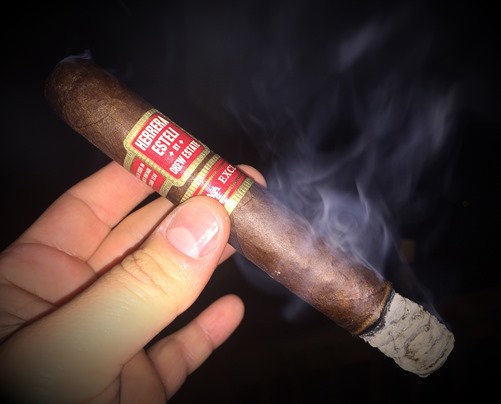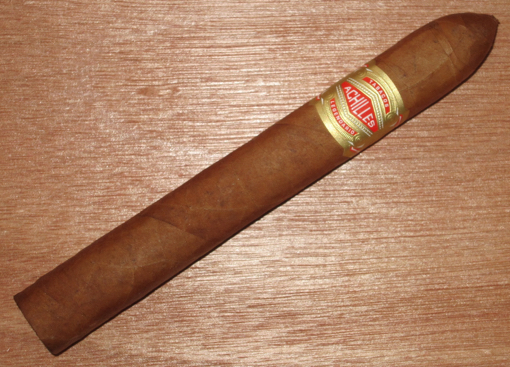
Cigar companies have a big problem. Nearly every business decision they make is impacted by FDA regulations, but the full details of those regulations haven’t yet been determined.
The 499-page deeming regulation finalized last spring officially took effect August 8. While that document provides an outline for the agency’s intentions, it leaves out many important compliance details. Even where guidance documents have been issued, the standards laid out in those documents are not legally binding (i.e., they can be changed at any time). And many other critical questions have not been addressed at all.
The resulting unpredictable cost of compliance is a serious issue for all cigar makers. The burden hits smaller brands the hardest, however, because they are least able to cope with such uncertainty. While FDA user fees are distributed proportionally according to each company’s market share, the unknown cost of successfully applying for FDA approval for a particular tobacco product will effectively be the same whether the company sells a few hundred units per year, or hundreds of thousands of units.
In a recent discussion of the ongoing process of complying with the FDA, Skip Martin of RoMa Craft Tobac described the problem cigar makers big and small face: “What we don’t know is how much that [Substantial Equivalence approval] process will cost us. We don’t know the details of what a substantial equivalence process will look like because there has never been one approved for a cigar ever.”
Even as the FDA delays many deadlines, small companies face tough choices. With product registration deadlines fast approaching, companies have to decide how much to invest in such registrations. Assuming the worst and providing numerous highly detailed registrations may maximize the likelihood of the registrations being approved. But it also increases the costs.
While the cost of gaining FDA approval—most likely through the Substantial Equivalence (SE) pathway, or by being a grandfathered pre-2007 product—is the biggest future hurdle, even the documentation needed for registration carries substantial costs, especially for a small company. Something seemingly as simple as who qualifies as a domestic manufacturer is unclear under the FDA regulations. Cigars may be rolled abroad, but what packaging changes within the United States qualify a brand as a domestic manufacturer?
That is an open question. The answer holds serious implications for the future business prospects of a company.
In the same conversation about the FDA process, attorney Frank Herrera, who represents dozens of cigar companies, gave a most lawyerly answer about whether or not you should register: “If you think you might be [required to register now], do it, list it.” In terms of maximizing the odds of complying with the FDA, Herrera is, of course, correct. For a small company operating on thin profit margins already, though, these costs could be prohibitive, or at least partially unnecessary.
Compliance with the FDA isn’t the only hurdle cigar makers and importers face. Retailers are liable if they sell a non-compliant product. This means retailers—especially large online and catalog sellers—are making buying decisions based on who appears likely (or not) to comply with all FDA regulations. Reports are already surfacing that retailers are cutting back on purchases of cigars they doubt will be on the market in two years.
So even before any deadlines pass, small cigar makers face a dilemma: Not spending money now on FDA compliance to show retailers you are likely to be on the market in two or three years means lost sales today, and those sales today may be the difference between having the funds or not to successfully pursue Substantial Equivalence in the future.
Meanwhile, with it totally unknown exactly how much a successful SE application will cost, continuing to sink money today into a process that ultimately may be cost prohibitive could itself be a fatal business decision. If a cigar maker runs the numbers and decides the volume of sales of product don’t warrant the currently unknown cost of investing in FDA approval, they risk that product being seen by retailers as a “zombie cigar” (destined to be killed off soon by the FDA).
When it comes to complying with costly regulations, larger companies with deep pockets are always better able to deal with the uncertainty. For boutique brands sold in smaller quantities, those costs represent a much higher percentage of their operating costs. As deadlines approach this year, smaller companies face impossible decisions with the fate of their businesses at stake.
–Patrick S
photo credit: Stogie Guys







 Patrick Ashby
Co-Founder & Editor in Chief
Patrick Ashby
Co-Founder & Editor in Chief Patrick Semmens
Co-Founder & Publisher
Patrick Semmens
Co-Founder & Publisher George Edmonson
Tampa Bureau Chief
George Edmonson
Tampa Bureau Chief